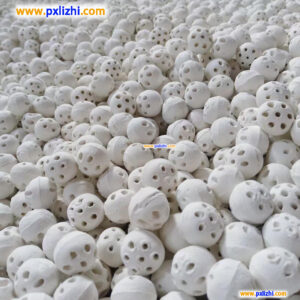The Ultimate Guide to Inert Ceramic Balls: Applications and Benefits

What Are Inert Ceramic Balls?
Inert ceramic balls are high-performance, non-reactive ceramic spheres widely used across industries for their durability and chemical stability. Made from materials like alumina and silica, these balls withstand extreme temperatures and harsh environments without degrading. They serve as essential components in chemical reactors, oil refineries, and environmental systems, offering reliable support and protection for catalysts and equipment.
Key Applications of Inert Ceramic Balls
These versatile balls are critical in numerous sectors. In the chemical industry, they act as catalyst bed supports, preventing clogging and ensuring even flow distribution. For oil and gas refining, inert ceramic balls help manage pressure drops and protect sensitive equipment. Environmental applications include water treatment and air purification systems, where they facilitate filtration and scrubbing processes. Their inert nature makes them ideal for handling corrosive or high-purity substances.
Thermal and Mechanical Benefits
Inert ceramic balls excel in thermal stability, maintaining integrity under rapid temperature changes. This makes them perfect for heat exchange and insulation tasks. Mechanically, their high crush strength resists abrasion and impact, extending equipment lifespan. Industries rely on them to reduce maintenance costs and enhance operational safety.
Chemical Resistance and Efficiency
Thanks to their non-porous surface, inert ceramic balls resist acids, alkalis, and solvents. This chemical inertness prevents contamination in processes like pharmaceutical manufacturing or food processing. By optimizing fluid dynamics, they improve reaction efficiency and product yield, supporting sustainable operations.
Frequently Asked Questions
What materials are inert ceramic balls made from?
They are typically composed of high-alumina or silica-based ceramics, chosen for purity and robustness.
How do inert ceramic balls compare to metal alternatives?
Unlike metals, ceramic balls don’t corrode or react, offering longer service life in aggressive environments.
Can inert ceramic balls be customized?
Yes, manufacturers provide tailored sizes and compositions to meet specific process requirements.
Unlock Superior Performance Today
Ready to enhance your industrial processes? Explore premium inert ceramic ball solutions designed for efficiency and reliability. Visit our site to learn more and request a customized quote—optimize your operations with trusted ceramic technology!